By Chris Halsall with contributions from Douglas Skeete
 IN any jurisdiction, companies operate ultimately under the legislation created by a central authority, i.e. the Government. Therefore, the argument can easily be made that this authority must seek to devise, and more importantly enforce, legislation preventing companies from inhibiting the development of liberalization and fair competition.
IN any jurisdiction, companies operate ultimately under the legislation created by a central authority, i.e. the Government. Therefore, the argument can easily be made that this authority must seek to devise, and more importantly enforce, legislation preventing companies from inhibiting the development of liberalization and fair competition.
Publicly traded companies (those listed on one or more stock markets) tend to act particularly aggressively, as they are dependent upon ever greater profits in order to raise their share price. Their executives’ remuneration packages are invariably tied to this, and often current (and ex-) employees hold a number of shares as well.
The stock market is a harsh mistress. Therefore a public company’s primary concern is about “making the numbers” for the next quarter – everything else is secondary. Stock prices have even been known to fall when a Company does manage to make their numbers, but do not “exceed analysis’ expectations”.
There’s nothing wrong with this, of course. To the contrary – it is raw capitalism at its purest; the most effective form of wealth creation ever devised by humans. But it must be appreciated and understood: capitalism is heartless, and companies feed upon their markets.
It is therefore important that in any marketplace rules and enforcement exist which prevent companies from making unreasonable and unfair profits, as they will not by nature constrain themselves. Companies should be symbiotic with their marketplaces (their ecosystems), rather than being parasitic. This is where the law and the enforcement of same come in.
Cable & Wireless (C&W) has had a long-time presence in Barbados and the Caribbean, and have aggressively acquired units of telecommunications companies throughout the region. In 1991 they purchased the remaining government owned shares in BET and BARTEL, the international and domestic telephone service companies respectively, and received an exclusive license to operate these services until 2011, creating a legal (if not natural) monopoly.
However, because of the pressures of globalization, and being signatories to WTO, CARICOM, GATS, et al, the Government of Barbados renegotiated its license with C&W to introduce liberalization early. A Memorandum of Understanding (MOU) was signed in 2001 which defined a three phase timetable for “Full liberalization” in exchange for concessions. The final phase, International Voice, was supposed to have been completed by 2003, but in fact was delayed until 2005.
So here we are now in 2008, and really not much has happened. Yes, we now have competition in mobile telephony, but after the initial excitement of a marketplace with a total of three competing providers, one has now left our market leaving a duopoly situation with prices for almost all services still much higher than they could and should be.
A consumer still cannot pick up the phone and make an international call using a competitive carrier of their choice. And while consumer-grade “high-speed” internet is much more widely deployed, because C&W continue to have control of the “last mile copper” they remain the dominate provider, other providers have to use wireless (an inherently limited means of transport) or rent service from C&W at an uncompetitive rate.
Anger about this situation should not be directed at C&W, it should be leveled squarely upon the government and its regulatory and enforcement functions. The question is not why C&W are doing what they’re doing, but why they are allowed to get away with it.
Fundamentally, Barbados and the entire Caribbean, is being held back from developing as quickly as we could. In today’s connected world, telecommunications are as critical to development as access to any traditional infrastructure.
Money is flowing out of the pockets of our people, and into the coffers of C&W which is 81 per cent owned by C&W (West Indies) which is in turn owned by C&W PLC.
Fifty two (52) million dollars flowed out of Barbados to England last year alone simply in dividends, not to mention various other consulting fees and service charges.
It is therefore hoped that this new government will take the progress of true liberalization appropriately seriously. Some hard questions need to be asked as to why things have been allowed to progress so slowly.
Are the Telecommunications Unit and Fair Trading Commission understaffed? Why are the laws and policies which exist not being enforced? One might even go so far as to ask for a forensic review.
Barbados must liberalize – it is part of our obligation as signatories of the WTO, among other agreements. It has been demonstrated elsewhere that it is in fact better for the marketplace as a whole. And the quicker this happens, the more competitive we and our people will be.
Please note that this article was to have been published in the Barbados Advocate Business Monday 2008.03.17, and while it was edited by a writer from the same publication to be more palatable, it did not actually find itself in said publication. Something about the fear of being sued. Or, perhaps, the risk of losing advertising revenue…
Here is the link to Chris’s blog on this and other telecommunications matters.





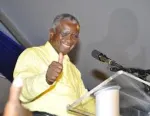
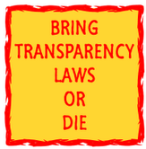

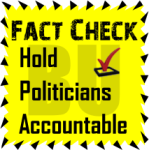
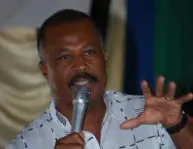
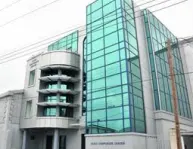


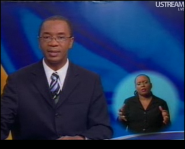




Well there are several funds that pay for electric poles. There is a rural development fund which is tapped by UDC, RDC and MTW. Poverty Alleviation fund has also paid for poles.
I am not sure what happens in the case of replacement poles.
Have to say I like the concept of “layer zero”. Reminds of the phrase “grund norm”; no mis-spelling there but it means a principle from which other principles flow.
@ROK… OK, but are these subsidised poles part of the main network, or “leaf” poles out serving only one (or a very few number of) consumer(s)?
Some of the interesting (and explosive) questions are — for any pole: who paid for it? When? How much revenue was derived from that *one* pole? How much of it already been paid for from the above revenue?
This is particularly important when the pole is “owned” by a current (or prior) monopoly, and/or it is on public land…
As far as I know BL&P demands payment for every pole, even if they charge all the customers feeding from it.
If C&W also using these poles and paying to do so, then BL&P got a business on the side or they both going scotch free. If the latter is the case, it would be good to see what C&W claiming for pole expenses???
@ Chris
The other matter would be MTW’s use of these poles. Do they use them for signage free of charge as well?
I have read the contributions of of the people knowledgeable in the telecommunications industry carefully and do not pretend to understand all the ramifications.
One question keeps recurring as a result of all that I read. What motivated the previous administration, C & W having been thwarted in its attempt to implement a metered system, seemingly bend over backwards to help it to ensure high profitability by way of the PCM, to the detriment of the people of Barbados and over the objections, to the point of resignation of the very people appointed to look after the interest of those consumers?
And following on to that, does the present administration feel any need to address the situation?
@Inkwell… Thank you. You have brought the fundamental questions forward…
We have news for C&W, to compare the rebranding exercise to that of Mutual, CIBC/Barclays or BWIA is simplistic and foolish. If this is the rationale then C&W must think the region for a fool. Those other companies rebranded for totally different reasons compared to C&W.
Added to the fact that they are not monopolies. Despite the deregulation in the telecoms market C&W provides the backbone for the telecom services current and to come.
Added we have frustration by respective markets targeting C&W about their anti-competitive practices. Changing their name to Pork LIME will not remove the frustration, suspicion and distrust which the market currently has for C&W.
Mr. JULIAN ROGERS, PLEASE TELL US HOW MANY MILLIONS THIS REBRANDING EXERCISE WILL COST?
COULDN’T THIS MONEY HAVE BEEN BETTER SPENT IMPROVING BROAD BAND?
We are sure that this matter will be discussed in the blogosphere in the coming weeks and months.
@ David.
Sorry for being the last to read this blog.
A monopolist company made $91 and its interest is not pretty much defined as to what is its current aim and motto that is worthy and dedicated to this island or our people…
Why there is no Enforcement of Regulations from the FTC?
IMO, this bears ‘irrelevance’ to Barbados Consumer public and the Economy.
The present Government should also think about doing something with these businesses aiming at making the profit hurdles. Get the Real Telecommunications Competition here and ‘enough of this money-making hurdle process already and use it…’
It looks like we’re seeing the needs of a newly Universal Public Consumer Watchdog Agency…